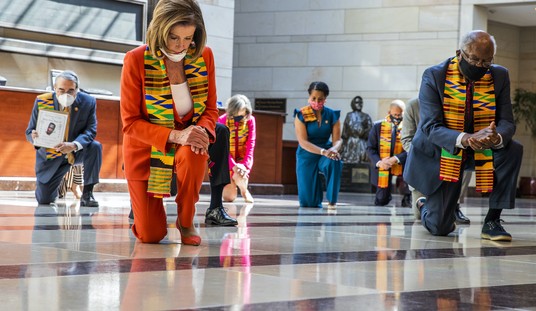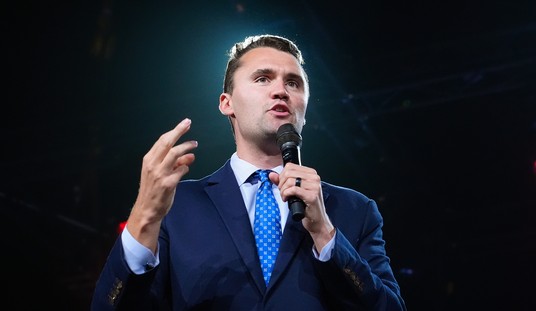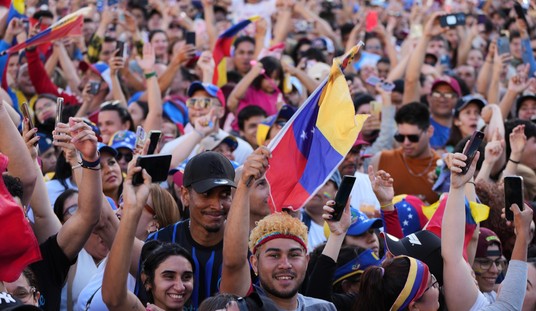
While there is no longer a clear answer as to what set off the FBI investigation into Russian influence in the Trump campaign, there is absolutely no doubt, whatsoever, as to what led to the appointment of a special counsel. James Comey, using government time, a government computer, a government server, and sitting in a government car with a government driver and security detail wrote a series of memos on conversations he’d had with President Trump. These memos were given by Comey to a friend of his, Columbia Law Professor Daniel Richman. And the purpose of the leak was to cause the appointment of a special counsel:
Comey says he asked a friend to share content of his memo with a reporter because it would prompt special counsel https://t.co/I294rPNNjQ
— The Situation Room (@CNNSitRoom) June 8, 2017
“I asked a friend of mine to share the content of the memo with a reporter,” Comey told the Senate Intelligence Committee on Thursday. “I didn’t do it myself for a variety of reasons but I asked him to because I thought that might prompt the appointment of a special counsel.”
Not long after that, we found that some of Comey’s memos were classified.
Now, just like the sandbagging of Congressional oversight in regards to the Trump dossier, the FBI is attempting to sandbag the efforts of the Senate Judiciary Committee to examine how the Comey memos got from Comey to Richman and how they were handled. Yesterday, Senator Chuck Grassley signaled his patience was at an end:
The Honorable Rod J. Rosenstein
Deputy Attorney General
U.S. Department of Justice
950 Pennsylvania Avenue, N.W.
Washington, D.C. 20530Dear Deputy Attorney General Rosenstein:
This Committee has previously written to the Department of Justice and the Federal Bureau of Investigation about the memoranda that former Director Comey created purportedly memorializing his interactions with President Trump.[1] My staff has since reviewed these memoranda in a Sensitive Compartmented Information Facility (SCIF) at the FBI, and I reviewed them in a SCIF at the Office of Senate Security. The FBI insisted that these reviews take place in a SCIF because the majority of the memos are classified. Of the seven memos, four are marked classified at the “SECRET” or “CONFIDENTIAL” levels. Only three did not contain classified information. FBI personnel refused to answer factual questions during the document reviews, including questions about the chain of custody of the documents I was reviewing, the date that they were marked classified, and who marked them as classified.
According to press reports, Professor Daniel Richman of Columbia Law School stated that Mr. Comey provided him four of the seven memoranda and encouraged him to “detail [Comey’s] memos to the press.”[2] If it’s true that Professor Richman had four of the seven memos, then in light of the fact that four of the seven memos the Committee reviewed are classified, it would appear that at least one memo the former FBI director gave Professor Richman contained classified information.[3] Professor Richman later read a portion of one of the memos to a New York Times reporter.[4]
When the Committee contacted Professor Richman seeking copies of the memos Mr. Comey had provided him, he refused to provide them, did not say how many he had received from Mr. Comey, and refused to say whether he retained copies.[5] It is unclear whether any of the memos reviewed by the Committee were retrieved from Professor Richman. The Committee has accordingly not determined which of the seven memos Mr. Comey provided him. Professor Richman did tell Committee investigators that he was working with the Special Counsel’s Office, and he reportedly told the media that he had turned over to the FBI copies of the memos he’d received from Mr. Comey.[6] If true, the Justice Department should know which memos were provided and be able to share that information with the Committee.
In order for the Committee to further assess this situation, please respond to the following in writing by no later than January 17, 2018:
1. Has the Justice Department or FBI in fact determined that any of the memoranda Mr. Comey sent Professor Richman contained classified information? If so, what steps were taken to retrieve and safeguard the information?
2. Which of the seven memoranda the FBI made available for the Committee’s review did Mr. Comey give to Professor Richman?
a. When did Mr. Comey give Professor Richman the memoranda?
b. At the time that Professor Richman received the memoranda, were any marked as classified?
c. At the time that Professor Richman received the memoranda, did any contain classified information, regardless of markings?
d. Please explain the method by which Mr. Comey transmitted the memoranda to Professor Richman. If the transmittal was electronic:
i. Please provide the account information that Mr. Comey and Mr. Richman used.
ii. Please describe what steps the FBI has taken to recover all copies of any classified memoranda that might reside on computers, servers, or at other locations.
3. Have you initiated an investigation into the matter of whether Mr. Comey improperly disclosed classified information by providing these memoranda to Professor Richman? If so, what is the status of the investigation? If not, why not?
4. Has there been any review of whether the disclosure of the memoranda by Mr. Comey was otherwise improper, such as whether it violated his employment agreement or any Department rule or policy? If so, what is the status of the review? If not, why not?
5. When did the FBI mark the four memoranda as classified, and who made the classification decision?
6. As noted above, it has been reported that Professor Richman returned the memoranda to the FBI.[7] If so, on what date did this occur?
7. Did anyone from the FBI or Special Counsel’s Office discuss with Professor Richman this Committee’s request for copies of the memos? If so, please provide all records related to any such communications.
8. Does Professor Richman still have possession of any of the memoranda or copies?
Consider for a moment that the Senate investigators had to view the memos in a Sensitive Compartmented Information Facility. That tells you straight away that the “Secret” information was pretty serious stuff. Knowing that at least one of the memos in Richman’s possession was classified at some level and that the FBI refuses to identify the memos Richman had would lead one to believe that the four memos leaked to Richman were probably the four classified memos because they would contain the most newsworthy information. The FBI is refusing to say when they were classified indicates that they were probably classified contemporaneous with Comey writing them.
Comey leaking is not big news. It was an avocation with him. But the FBI is actively covering for him. That is a big deal.
Rod Rosenstein has said that if Comey leaked the memos, it would be improper:
So it will be interesting to see how Rosenstein handles this. And I think this sandbagging of Grassley is going to weigh heavily on any decision Paul Ryan makes after yesterday’s visit by Rosenstein and Wray. People can portray Nunes as a Trump partisan if they want (and there is nothing wrong with that because Adam Schiff is a vicious, dishonest anti-Trump partisan and you fight fire with fire) but they can’t do the same with Grassley. And the actions of the FBI with Grassley are indicative of a pattern of contempt for the role of Congressional oversight.
When the undergrowth is eventually cleared and we understand how the Russia probe happened, the only thing left visible will be James Comey.














Join the conversation as a VIP Member